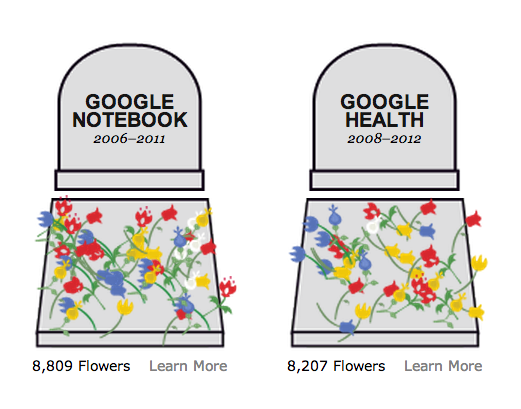Via The Atlantic
-----
Over the eons I've been a fan of, and sucker for, each latest automated system to "simplify" and "bring order to" my life. Very early on this led me to the beautiful-and-doomed Lotus Agenda for my DOS computers, and Actioneer for the early Palm. For the last few years Evernote has been my favorite, and I really like it. Still I always have the roving eye.
So naturally I have already downloaded the Android version of Google's new app
for collecting notes, photos, and info, called Google Keep, with logo
at right. This early version has nothing like Evernote's power or
polish, but you can see where Google is headed.
Here's the problem: Google now has a
clear enough track record of trying out, and then canceling,
"interesting" new software that I have no idea how long Keep will be
around. When Google launched its Google Health service five years ago,
it had an allure like Keep's: here was the one place you could store
your prescription info, test results, immunization records, and so on
and know that you could get at them as time went on. That's how I used
it -- until Google cancelled this "experiment" last year. Same with
Google Reader, and all the other products in the Google Graveyard that Slate produced last week.
After Reader's demise, many people noted
the danger of ever relying on a company's free offerings. When a
company is charging money for a product -- as Evernote does for all
above its most basic service, and same for Dropbox and SugarSync -- you
understand its incentive for sticking with that product. The company
itself might fail, but as long as it's in business it's unlikely just to
get bored and walk away, as Google has from so many experiments. These
include one called Google Notebook, which had some similarities to Keep,
and which I also liked, and which Google abandoned recently.
So: I trust Google for search, the core of how it stays in business. Similarly for Maps and Earth, which have tremendous public-good side effects but also are integral to Google's business. Plus Gmail and Drive, which keep you in the Google ecosystem. But do I trust Google with Keep? No.
The idea looks promising, and you can see how it could end up as an
integral part of the Google Drive strategy. But you could also imagine
that two or three years from now this will be one more "interesting"
experiment Google has gotten tired of.
Until I know a reason that it's in Google's long-term interest to keep Keep going, I'm
not going to invest time in it or lodge info there. The info could of
course be extracted or ported somewhere else -- Google has been very
good about helping people rescue data from products it has killed -- but
why bother getting used to a system that might go away? And I don't
understand how Google can get anyone to rely on its experimental
products unless it has a convincing answer for the "how do we know you
won't kill this?" question.

